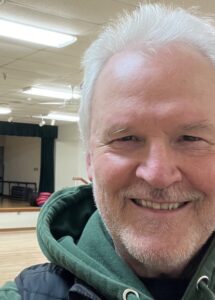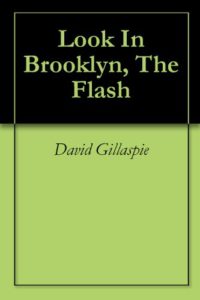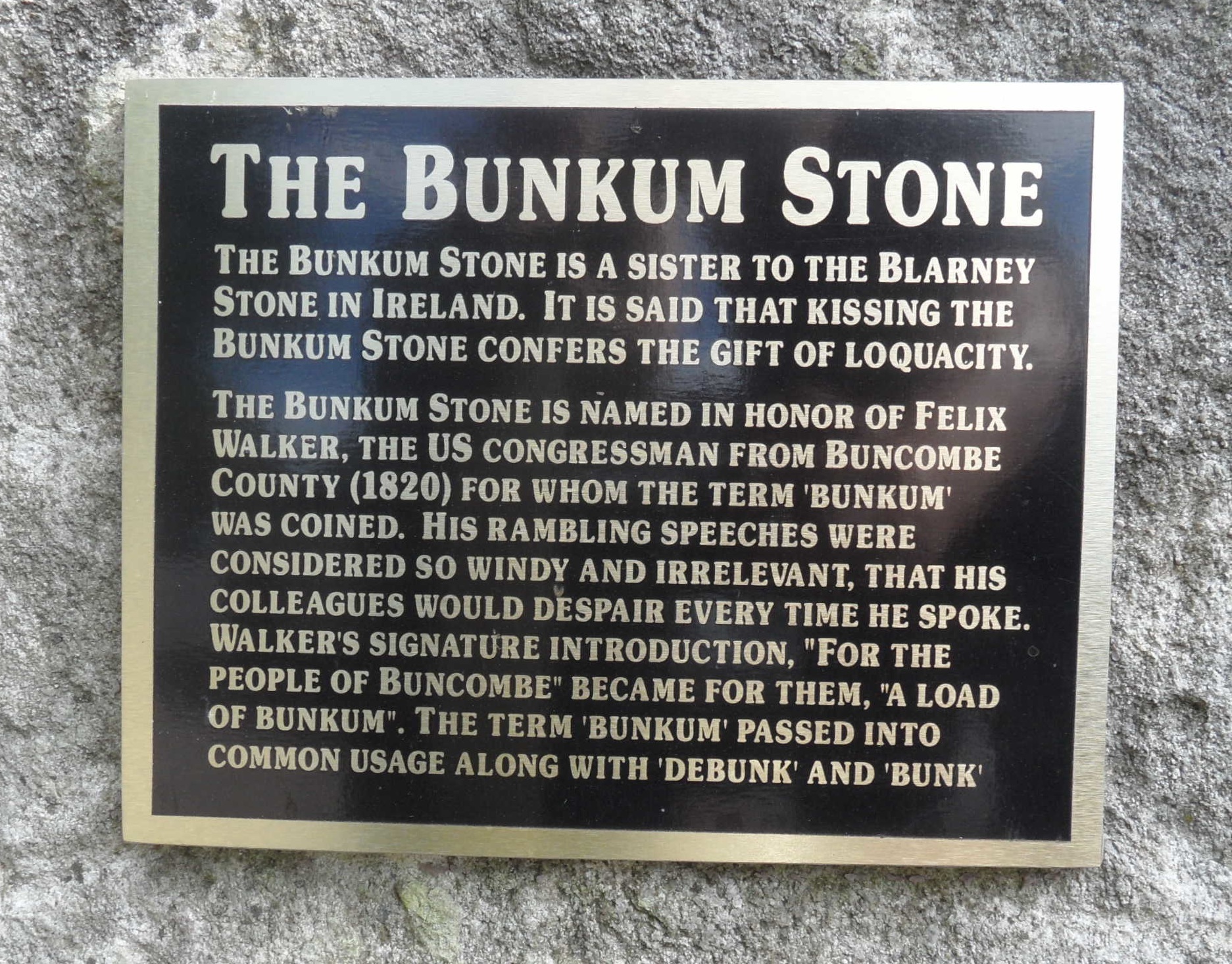
It’s been said Thomas Wolfe wrote many bad sentences, but never a boring one. Sound like someone you know, someone you should know? No kiss and tell.
Who needs a writing class? Everyone needs a writing class.
Written by a baby boomer blogger, this writing class strikes to the heart of communication in written words.
It’s a Writing Class, not talking class. Talking comes after writing class.
First think about what you are writing, then write. Afterwards find someone to talk about writing. Explain what you meant to do, what you did, then listen for ideas.
Write first, talk later, because talking is easier. And cheaper. All you got to do is breath. Maybe share a pitcher to help out.
Besides, you’ve already said everything worth saying, now you get to find out if it makes sense on the page. You’ll have proof either way.
If you do need some preliminary work on the talking part, pucker up.
Kissing the Bunkum Stone guarantees loose lips.
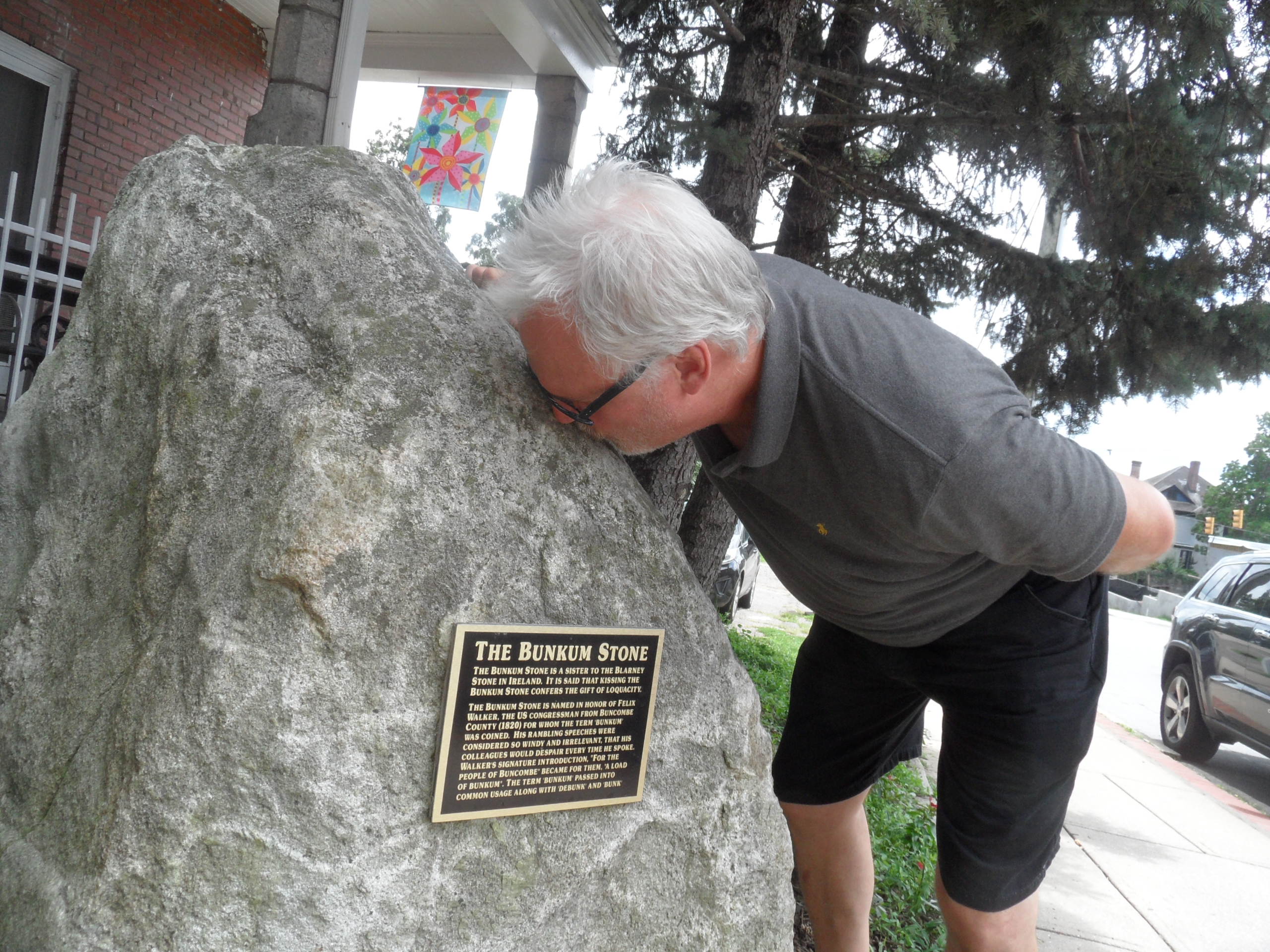
Kiss a rock? That’s part of the Thomas Wolfe writing class? Okay.
Too often writers come and go like comets, like Mark Twain showing up and leaving the same time as Haley’s Comet showed up.
Thomas Wolfe showed up at the turn of a new century and came out with Look Homeward, Angel in 1929.
For writing class awareness, Wolfe’s book showed up at #82 on goodreads.com top books of the decade from 1920-1929.
He had tough competition with The Great Gatsby’s F. Scott Fitzgerald, Hemingway and Faulkner, and James Joyce.
#81 on the list is Richard Connell’s ‘The Most Dangerous Game.’
#83 is Jean Toomer’s ‘Cane.’
I’m sure both are fine authors with grand books, but do they have a porch full of chairs sponsored by writers they’ve influenced, of academics who know the greater value and meaning of Thomas Wolfe, people of cultivate their inner Wolfe?
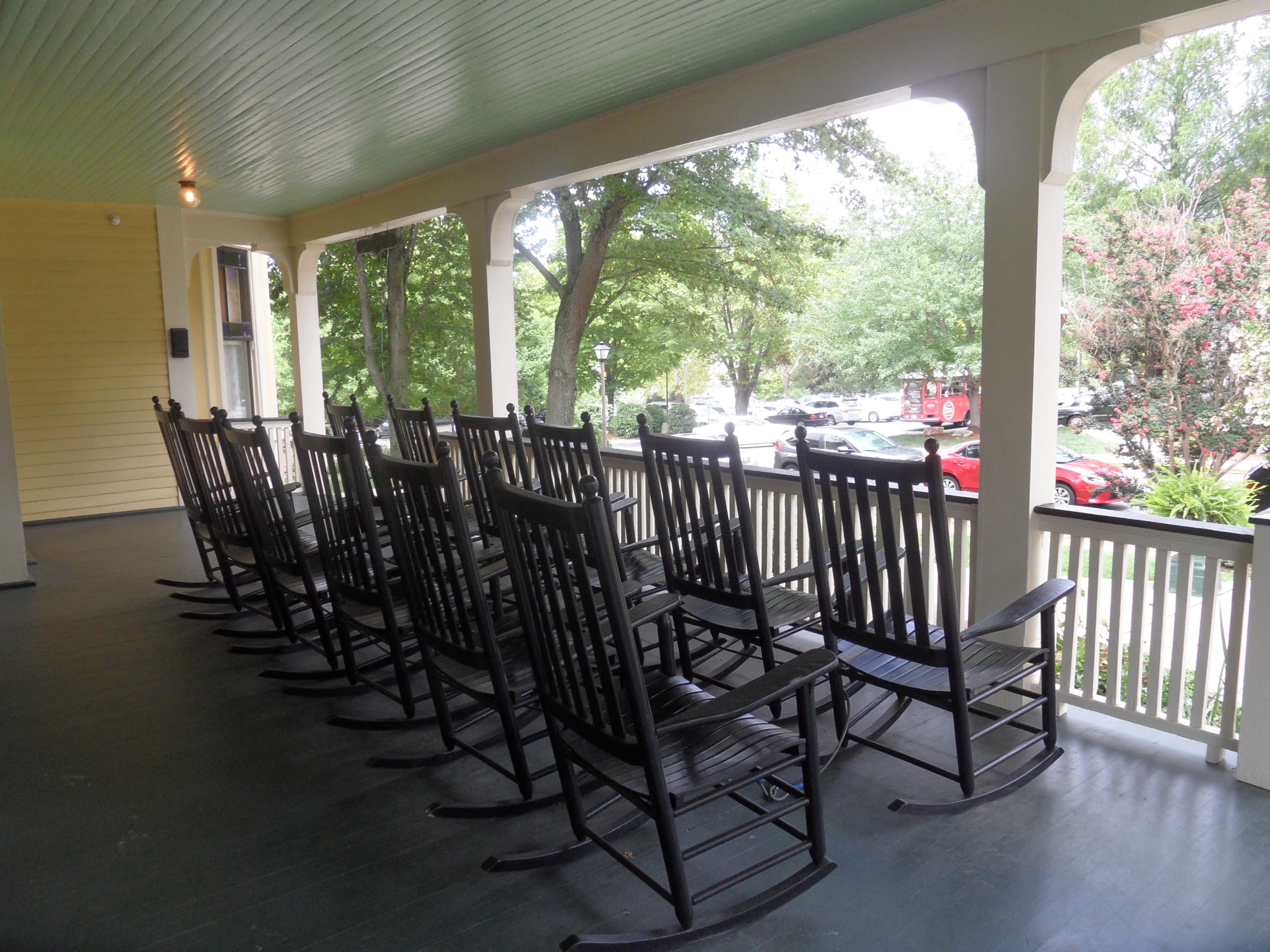
Like James Dean in the fifties, Thomas Wolfe lived fast and died young, leaving a string of fans around the world who still try and crawl under his skin.
Did he portray the big city and bright lights like Fitzgerald?
Did he milk the ‘American abroad mystique’ like Hemingway and The Lost Generation?
“The “Lost Generation” was the generation that came of age during World War I. The term was popularized by Ernest Hemingway, who used it as one of two contrasting epigraphs for his novel, The Sun Also Rises. In that volume Hemingway credits the phrase to Gertrude Stein, who was then his mentor and patron. This generation included artists and writers who came of age during the war such as F. Scott Fitzgerald, T. S. Eliot, James Joyce, Sherwood Anderson, John Dos Passos, John Steinbeck, William Faulkner, Djuna Barnes, Waldo Peirce, Isadora Duncan, Abraham Walkowitz, Ezra Pound, Alan Seeger, Franz Kafka, Henry Miller, Aldous Huxley, Malcolm Cowley, Louis-Ferdinand Céline, Erich Maria Remarque and the composers Sergei Prokofiev, Paul Hindemith, George Gershwin, and Aaron Copland.”
But no Thomas Wolfe?
“The literature figures of the Lost Generation tended to use common themes in their writing. These themes mostly pertained to the writers’ experiences in World War I and the years following it. It is said that the work of these writers was autobiographical based on their use of mythologized versions of their lives. One of the themes that commonly appears in the authors’ works is decadence and the frivolous lifestyle of the wealthy. Both Hemingway and Fitzgerald touch on this theme throughout their novels, The Sun Also Rises and The Great Gatsby. Another theme that is common for these authors was the death of the American dream, which is exhibited throughout many of their novels. It is most prominent in The Great Gatsby, in which the character Nick Caraway comes to realize the corruption he was surrounded by.”
Still no Thomas Wolfe?
The Lost Generation after WWI and Thomas Wolfe reminds me of the writers after WWII.
Norman Mailer, Joseph Heller, and James Jones came out with Naked and the Dead, Catch-22, From Here To Eternity. J.D. Salinger came back from some of the worst of the war to write Catcher In The Rye.
Instead of a war story in 1929, Thomas Wolfe wrote Look Homeward, Angel.
Maybe that’s what keeps people on the Old Kentucky Home porch?
Write that down. Then take a seat.
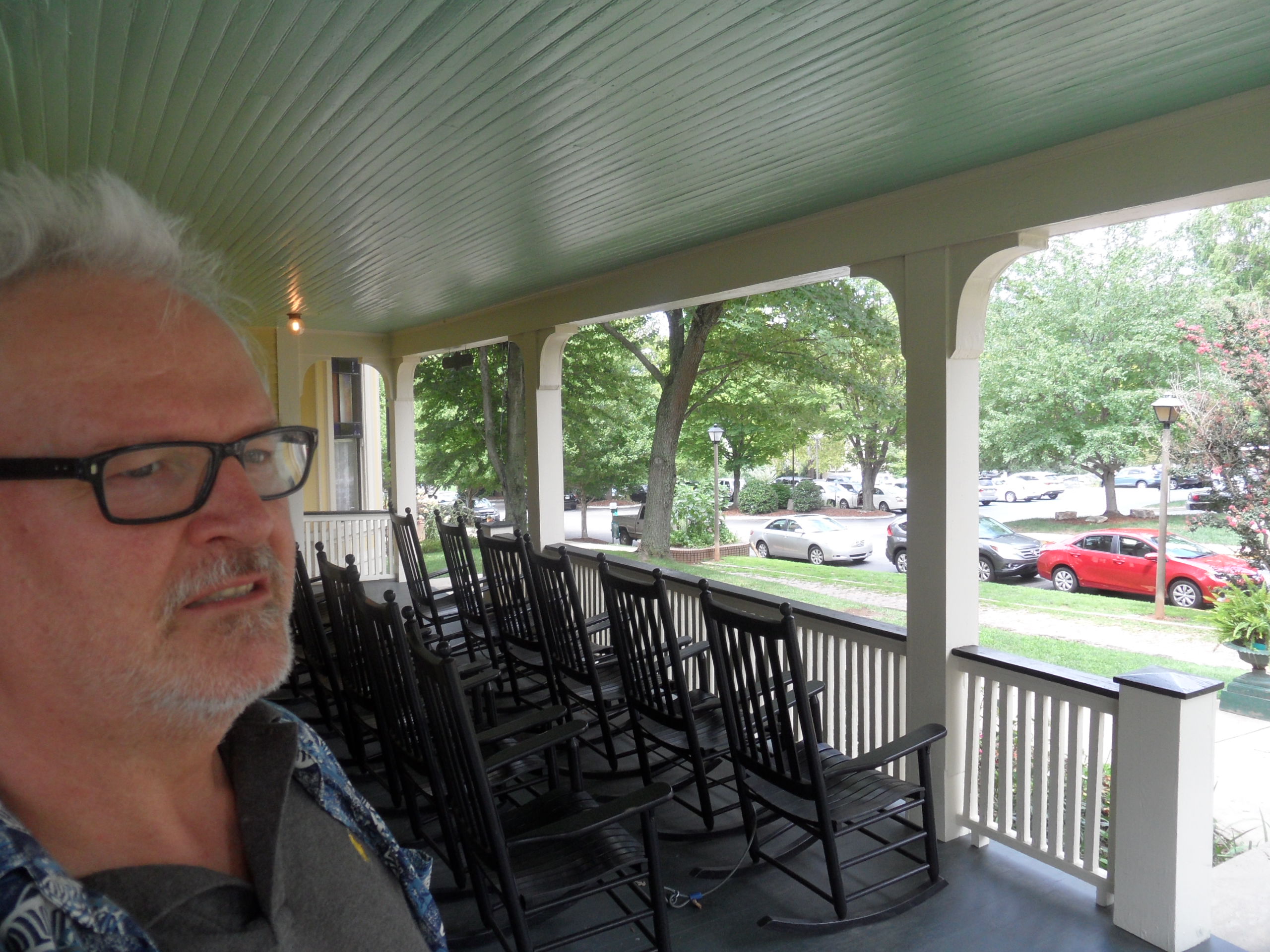
Looking for a chair. They’re around here somewhere.
